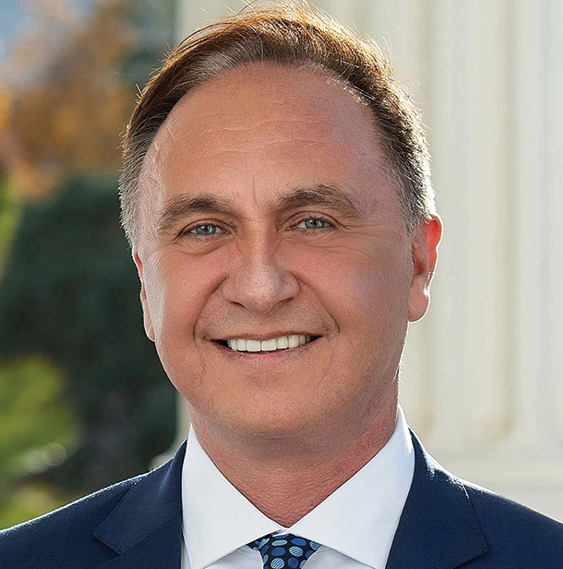
Assemblyman Rick Chavez Zbur
In vitro fertilization treatments became a national campaign issue earlier this year when an Alabama Supreme Court ruling declared that frozen embryos were to be considered legal children. Since the ruling, which was lambasted across the political spectrum, other states have sought to protect IVF treatments from government intervention. Now, Gov. Gavin Newsom has signed legislation that will require health insurance companies to cover IVF and infertility treatments. It also extends those treatments to include LGBTQ+ families.
Los Angeles LGBT Center chief impact officer Terra Russell-Slavin pointed out that the law changes the definition of infertility to include “a person’s inability to reproduce either as an individual or with their partner without medical intervention.”
“The new definition makes clear that LGBTQ+ couples or single people seeking to start a family qualify for coverage, and no longer must prove fertility problems. This is a major victory,” Russell-Slavin said. “There is also a lot of shame and stigma around LGBTQ families coming forward to even seek IVF treatment. Hopefully, this bill helps reduce those social and systemic barriers and create a safe, healthy and affordable pathway for LGBTQ families to grow.”
“California is a proud reproductive freedom state – and that includes increasing access to fertility services that help those who want to start a family,” Newsom said in a statement. “As Republicans across the country continue to claw back rights and block access to IVF – all while calling themselves ‘the party of families’ – we are proud to help every Californian make their own choices about the family they want.”
“With increasing attacks on reproductive freedom and IVF across the country, we are immensely grateful to Gov. Newsom for once again demonstrating that California is committed to ensuring that all people have the freedom to make personal decisions about their reproductive lives and futures,” Equality California executive director Tony Hoang said.
Equality California estimated that roughly 10 million Californians would benefit from the “full spectrum of fertility and infertility services.”
Assemblyman Rick Chavez Zbur (D-Hollywood), who previously served as executive director for Equality California, pointed out how long a fight it has been for the LGBTQ+ community. He recalled a survey which found that one of the greatest challenges facing the lives of the community was the obstacles to becoming parents.
“I think this is one of the most exciting bills of this whole legislative session,” Zbur said. “It’s going to be such an important step forward for LGBTQ+ parents.”
Zbur, who is gay, remembered when he and a lesbian couple decided to become co-parents years ago.
“I remembered how difficult it was for us to have kids,” he said. “We tried for several years before the birth mother became pregnant with our first child, going to both IUI and IVF, and it was something that cost us a significant amount of money. It was a huge, huge cost, and we weren’t sure how long we could continue it. And then, of course, we tried again when we had the twins … luckily, as the three of us were professionals, we could scrape together enough money to do that. But most LGBT people cannot. So, this bill actually opens up this opportunity for the vast majority of members of the LGBTQ+ community.”
Some opponents raised concerns about a rise in the cost health care premiums, and Russell-Slavin said it was unclear if there would be any impact at all.
“Opponents to the California bill said insurance companies estimated an additional $500 million per year in costs, which is astronomical and absurd,” she said. “There most likely will be an increase, but experience from other states suggests it will be less than 1%.”
Zbur said that he felt the bill showcased his party’s commitment to families.
“One of the things that Democrats stand for is the fact that we are trying to embrace freedom – freedom to create our families in the way that we want, freedom to have control over our bodies, freedom to not have the government intruding into these very personal choices. This is an example of California leading again and basically saying that when it comes to parenting, that LGBTQ+ people should have access to the same reproductive care that other people have in order to create their families.”





